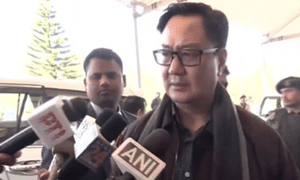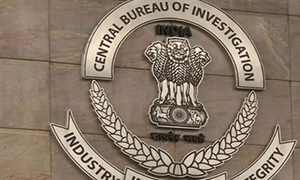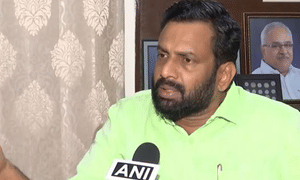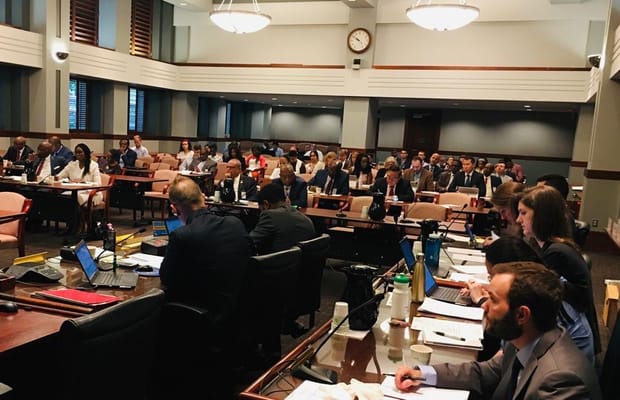



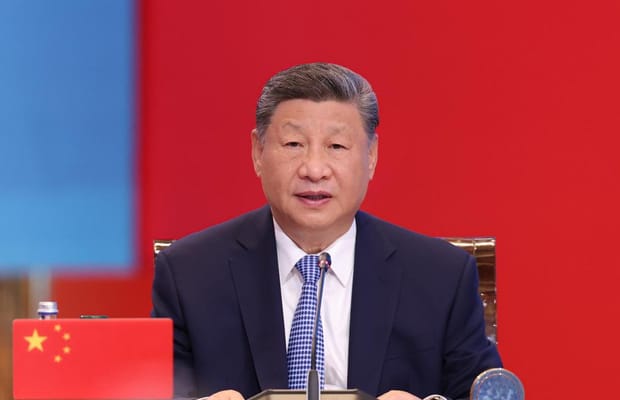



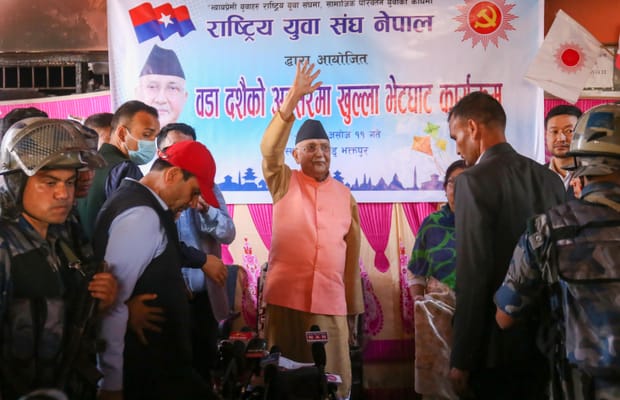
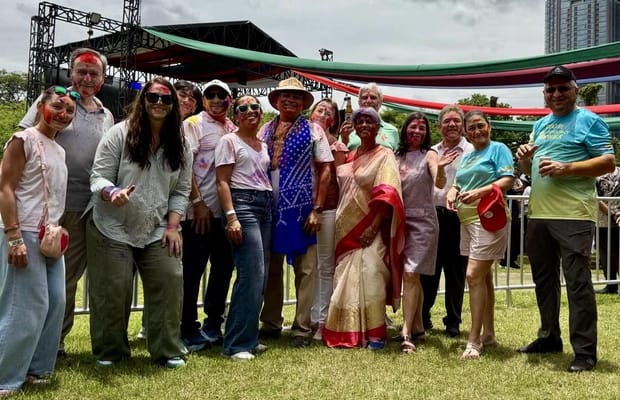

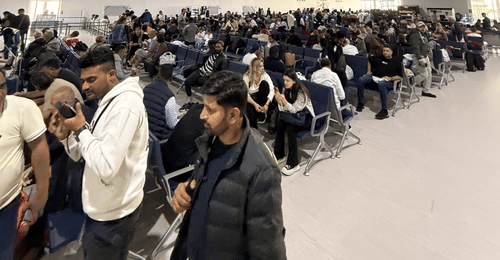
















As airspace in Dubai partially reopened amid the ongoing West Asia conflict, Indian citizens arrived in New Delhi on Tuesday, sharing the panic and financial impact caused by widespread flight cancellations. Air India welcomed passengers and crew from flight AI916D at Indira Gandhi International Airport, marking the first international arrival by an Indian carrier that day. The flight carried 149 passengers and eight crew members.
Several travelers reported having to bear extra expenses due to extended stays in Dubai. A tourist from Noida said their return was scheduled for February 28, but the flight was cancelled. They requested government support for Indians stranded abroad and expressed gratitude to Air India for guidance. Another passenger mentioned that while the situation in Dubai was largely calm, the high cost of living and flight disruptions had imposed financial burdens. Security measures were described as strict but reassuring.
Dubai Airports announced a limited resumption of operations from March 2, allowing a small number of flights from Dubai International Airport and Al Maktoum International Airport. With flights gradually resuming, normalcy is slowly returning, and thousands of Indians are finally able to return home, though authorities urge caution. Passengers returning from Muscat, Oman, described a harmonious environment with supportive administration. Flights there had briefly been halted due to regional tensions but resumed within 24 hours.
The disruptions followed US-Israel strikes against Iran on February 28, which prompted Iranian retaliatory drone and missile attacks on multiple US bases in Arab countries. These actions led to widespread flight cancellations, creating challenges for Indian travelers and prompting governments and airlines to coordinate safe returns.
Disclaimer: This image is taken from ANI.

Major airlines including IndiGo, Akasa Air, Qatar Airways, and Emirates have suspended or extended the suspension of flights to and from Middle Eastern destinations amid rising regional tensions. Passengers are being offered travel waivers and full refund or rescheduling options. IndiGo, in a statement on X, said it is closely monitoring developments in the region and has extended the temporary suspension of select international flights passing through Middle Eastern airspace. The airline urged passengers to check their flight status and confirmed that travelers can reschedule at no extra cost or receive credit for future travel on affected routes until March 7, 2026, for bookings made on or before February 28, 2026.
Akasa Air announced that all flights to and from Jordan, Doha, Jeddah, Kuwait, and Riyadh on March 3, 2026, are suspended due to the ongoing situation. The airline confirmed passengers could opt for full refunds or reschedule their travel without additional charges until March 7, 2026. Qatar Airways said its operations remain temporarily suspended because of the closure of Qatari airspace. The airline stated flights will resume once the Qatar Civil Aviation Authority declares it safe to reopen airspace, with updates scheduled for March 3.
Emirates temporarily halted all flights to and from Dubai until 3:00 PM UAE time on March 3 due to multiple regional airspace closures. Passengers booked to travel by March 5 are being offered the option to rebook for travel by March 20 or request a full refund. Emirates advised travelers to monitor operational updates online and said all city check-in points in Dubai remain closed.
The disruptions come amid escalating tensions in West Asia following US-Israel joint strikes on Iran that killed the country’s Supreme Leader, Ayatollah Ali Khamenei, and his family. Iran has since launched retaliatory drone and missile strikes targeting multiple Arab countries, leading to widespread airspace closures and major impacts on international aviation.
Disclaimer: This image is taken from ANI.

In a significant escalation of regional tensions, Israel and the United States launched a joint military operation targeting Iran, citing an existential threat to Israel and global security. Israeli Prime Minister Benjamin Netanyahu described the move as both defensive and strategic, condemning Iran’s long-standing hostility and labeling its leadership a “terrorist regime” that must not be allowed to acquire nuclear weapons. In a national address, Netanyahu thanked US President Donald Trump for his “historic” support and appealed to the Iranian people to rise against their government.
The operation, named Operation Roaring Lion, aims to degrade Iran’s military and nuclear capabilities over time, addressing threats posed by the regime and its proxies along Israel’s borders. The Israeli Defense Forces emphasized that the Iranian leadership continues to finance, train, and arm forces positioned against Israel, representing an ongoing danger to the Middle East and the wider world.
Meanwhile, President Trump issued a stark warning to Iranian forces, offering full immunity to those who surrender but threatening “certain death” for noncompliance. He also urged Iranian civilians to remain sheltered during the operation, framing it as a historic opportunity for them to reclaim control of their government.
The strikes follow weeks of tense nuclear negotiations and heightened military posturing, signaling a decisive retaliatory move by Israel and the United States. Both leaders highlighted the broader goal of empowering the Iranian people while neutralizing threats to Israel and global stability, marking a pivotal moment in the ongoing confrontation with Tehran.
Disclaimer: This image is taken from @netanyahu.

Pushkar Singh Dhami on Saturday attended a programme at Sushila Tiwari Government Medical College in Haldwani, where he inaugurated and laid foundation stones for 40 development projects worth Rs 147.28 crore. According to an official release, 23 projects valued at Rs 72.38 crore were inaugurated, while foundation stones were laid for 17 projects costing Rs 74.90 crore. The Chief Minister said these initiatives would speed up development in Nainital district.
He stated that the government is moving rapidly toward the vision of a "Developed Uttarakhand," with steady progress being made across sectors. He added that several landmark decisions taken by the state have become examples for others to follow. Alongside development, he stressed the government's commitment to safeguarding the state’s cultural heritage.
Reaffirming that the administration’s priority is the overall advancement of Uttarakhand, he highlighted key decisions such as the implementation of the Uniform Civil Code, a stringent anti-copying law, and an anti-conversion law. He also asserted that the state’s culture, traditions, and sanctity would be firmly protected.
Among the 23 completed projects were a 30-metre motor bridge over the Shipra River; a technology laboratory at the Government ITI in Haldwani; tube wells in Kotabagh, Mahadevpuram, Jhaluwajhala, Belpokhra, and Bailpadav; a laboratory at the Women’s College; stabilizer installations at tube wells in Lalkuan; and 14 drinking water schemes under the Jal Jeevan Mission covering multiple villages. A new building at the Veterinary Hospital in Ramgarh was also inaugurated, among other works. On the occasion, under the Chief Minister’s announcement and the Special Plan Assistance programme, he also performed the Bhoomi Pujan for the Haldwani-Kathgodam source and treatment augmentation drinking water scheme, which has been approved at a cost of Rs 154.43 crore.
Disclaimer: This image is taken from CMO.



Under President Lee Jae Myung’s guidance, investor confidence in South Korea has surged, fueled by ambitious reforms—from proposed corporate governance improvements and regulatory adjustments to efforts aimed at revitalizing the stock market. His pro-market policies have shifted sentiment positively, attracting both domestic and international investors and pushing the Kospi to new highs. But is this surge sustainable, or merely a short-term spike? Hairianto Diman and Elakeyaa Selvaraji explore the outlook with Betty Wang, Head of Northeast Asia Research at Oxford Economics.
Disclaimer: This podcast is taken from CNA.

The Barries have returned, and Angus Taylor has emerged victorious in the Liberal leadership contest, defeating Sussan Ley. Speaking on Friday afternoon, the newly elected leader stressed that he had no intention of becoming “One Nation lite,” but vowed to “close the door” to those who do not share “Australian values.” However, the leadership spill was not the only major development in Australian politics this week. Barrie Cassidy and Tony Barry also examine the challenges facing Taylor, the growing momentum of One Nation, and the recent visit by Israeli president Isaac Herzog.
Disclaimer: This podcast is taken from The Guardian.

In Destination Anywhere, Melanie Oliveiro speaks with dentist and author Vrushali Junnarkar, who shares her experiences of discovering the many attractions and natural retreats in Khandala, a charming hill station located in Maharashtra in central-western India. Frequently referenced in her novel The Campbell Gardens Ladies' Swimming Class, Khandala holds special significance for Junnarkar as she describes visits to the town’s historic fort, waterfalls, and caves. She also discusses traditional Maharashtrian street food and regional dishes that are rarely found in Singapore.
Disclaimer: This podcast is taken from CNA.

Karate standout Marissa Hafezan clinched Singapore's first gold in the sport at the SEA Games in 32 years. She defeated Vietnam's Nguyen Thi Dieu Ly 5-3 in the women's kumite under-55kg final to secure the historic victory. Andrea Heng and Hairianto Diman sit down with Marissa to learn more about her remarkable achievement. They also get an update on Team Singapore’s overall performance at the midpoint of the Games, featuring insights from Marissa Hafezan, SEA Games gold medallist and Singapore karate exponent, and Phil Goh, independent sports journalist.
Disclaimer: This podcast is taken from CNA.









